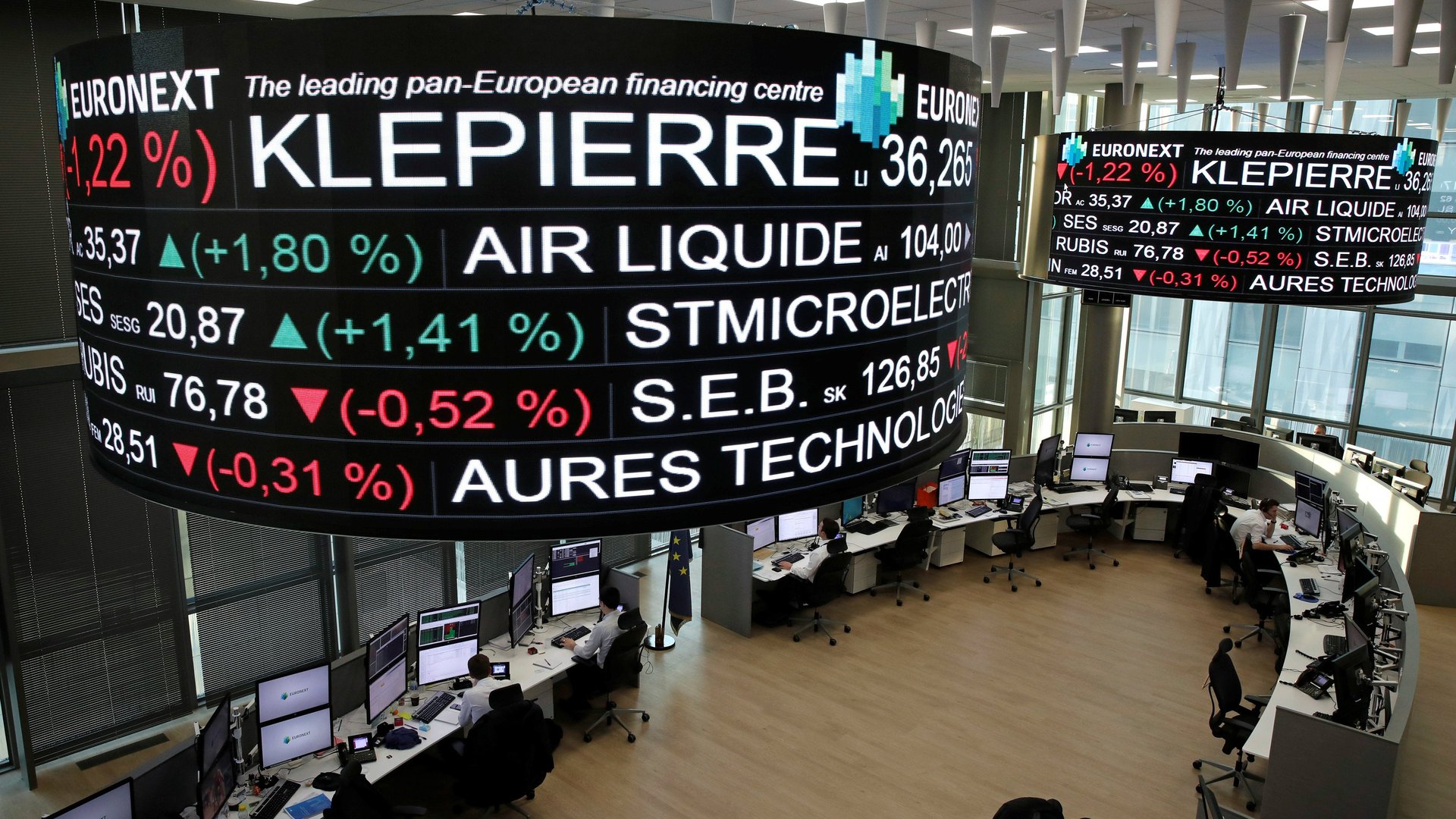Ireland’s stock exchange sold for the same amount as a Wall Street banker’s salary
Ireland’s stock exchange was recently purchased for €137 million ($163 million). That’s less than what Apple’s chief executive, Tim Cook, was paid last year, and comparable to some of the most highly compensated bankers, according to a Bloomberg pay analysis. While these numbers demonstrate that a handful of executives can make a shocking amount of money, they also highlight where the money is in finance these days.


Ireland’s stock exchange was recently purchased for €137 million ($163 million). That’s less than what Apple’s chief executive, Tim Cook, was paid last year, and comparable to some of the most highly compensated bankers, according to a Bloomberg pay analysis. While these numbers demonstrate that a handful of executives can make a shocking amount of money, they also highlight where the money is in finance these days.
John Weinberg, a former investment banker (paywall) at Goldman Sachs, was paid $124 million by Evercore Partners, while Paul Taubman, CEO of PJT Partners, was paid $164 million in 2015, according to Bloomberg (paywall). Granted, Weinberg’s impressive pay was mainly in the form of sign-on awards, while Taubman’s compensation had a large stock component. But overall, the investment banking industry appears to have healthy margins.
Making money by running a stock exchange, meanwhile, is more difficult than it used to be. Big markets like Europe and the US are transparent, heavily regulated, and competitive: The Irish stock exchange made just €2.6 million in revenue from cash trading in the first nine months of the year. Stock markets are electronic and dominated by algorithms, and making money is more difficult for bank brokers, too. They’ve had to reboot by stocking up on robots and technologists to remain viable. Traders on Goldman’s US equity trading desk have reportedly been culled from 600, to just two people.
That should be a good thing for investors, as the cost of trading by some measures has gone down. But the stock market operators and brokers have had to look for new ways to make money, like selling data or algorithms.
Investment banking has its competitive pressures—such as from boutique firms and in-house advisors (paywall)—but takeover advice can still land fees worth hundreds of millions of dollars, and bankers (even those that aren’t stars like Weinberg and Taubman) can make more than $1 million a year, according to the Wall Street Journal. While stock market buying and selling is highly commodified, mostly taking place electronically in data centers, an investment banking deal can still be bespoke and based on relationships. The value of salesmanship and advice is harder to quantify.
That’s not to say investment bankers are permanently safe from margin-crushing regulation or even automation, as executives openly speculate on how many jobs they can replace with machines. Some of the highest paid executives, after all, are in the technology industry. But for now, the financial sector can still make a lot of money from personalized transactions that rely on Excel spreadsheets and a mobile phone full of contact information.